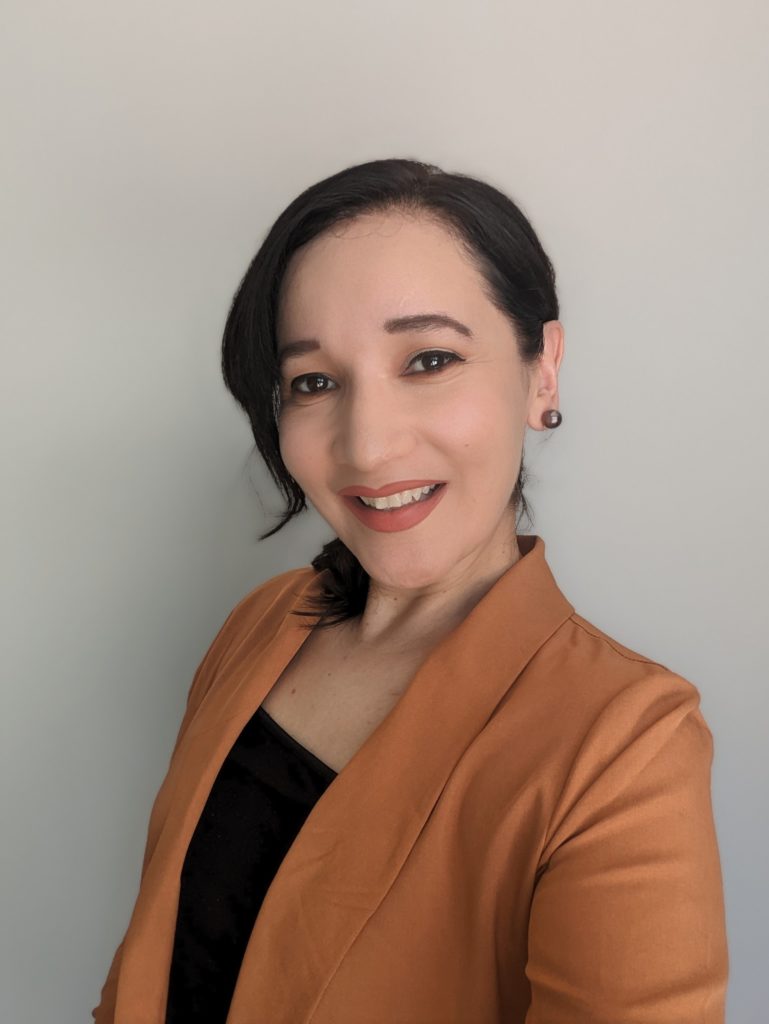Esmeralda Vazquez

Esmeralda Vazquez ’03 MS ’15 OTD is a “lived experience expert” for the National Hemophilia Foundation.
It’s a fitting title. Vazquez, who has an ultra-rare inherited bleeding disorder, is a community voice for others with similar conditions who are struggling to navigate the disparities of a complicated health care system.
To honor her advocacy, the hemophilia foundation named her 2022 Mary M. Gooley Humanitarian of the Year.
“Within the inheritable bleeding disorder community, Esmeralda Vazquez’s name is synonymous with health equity and patient-centric care,” the award citation read. “Through her championing of subject matter expert voices (particularly those of BIPOC community members) and her work embedding patient input within the research process, Esmeralda Vazquez has dedicated her life to ensuring that everyone’s voice matters within the inherited bleeding disorders community’s paths.”
Vazquez is an occupational therapist with her own Early Intervention Program practice, Stepping Stones Therapeutics. She works with children up to 3 years old and their families, making home visits to clients in the Back of the Yards and Englewood neighborhoods.
She is also an OT in the wheelchair and seating clinic at Shirley Ryan AbilityLab and works as needed as an inpatient pediatric OT at Lurie Children’s Hospital.
Vazquez grew up in a Spanish-speaking family on the South Side. Her practice focuses on underserved populations in low-income neighborhoods—immigrant families like hers who face language and cultural barriers to resources, especially health care.
“It helps me understand the socioeconomic stresses they experience,” she said.
“I feel like I’m a more empathetic health care provider, because I understand the health care disparities that people experience.”
Vazquez has Glanzmann’s thrombasthenia, an inherited disorder that causes prolonged or spontaneous bleeding. It affects 1 in 1 million individuals worldwide. Her brother also has the disorder.
Her condition is stable now; she’s planning a hiking trip to Easter Island next year.
“But I spent a lot of my childhood hospitalized. I grew up in in the hospital,” she said.
“It led me to the field of occupational therapy. Being familiar, as a patient, with the health care system has informed my practice in occupational therapy and my work with the National Hemophilia Foundation. And occupational therapy helped me become a better advocate in the bleeding disorders community.”
Having a rare disorder also means Vazquez must constantly advocate for herself.
“Many health care providers don’t understand the disease, so I have to educate them if I need a procedure like getting my wisdom teeth out. I have to be aware of insurance and how our health care system works. Because I’m in health care, I can navigate that more easily people who aren’t, like my brother.”
The hemophilia foundation, which has awarded about $22 million to bleeding disorders research, is developing a more patient-centered research agenda in partnership with people who have bleeding disorders and their families.
Sharing patient input is an important part of Vazquez’s mission.
“All those social determinants of health that I experienced, all that I do in the community—I bring that knowledge to the National Hemophilia Foundation and say, ‘These are the communities you are trying to serve.’
“One of the main things that I do is bring that minority voice to the table.”